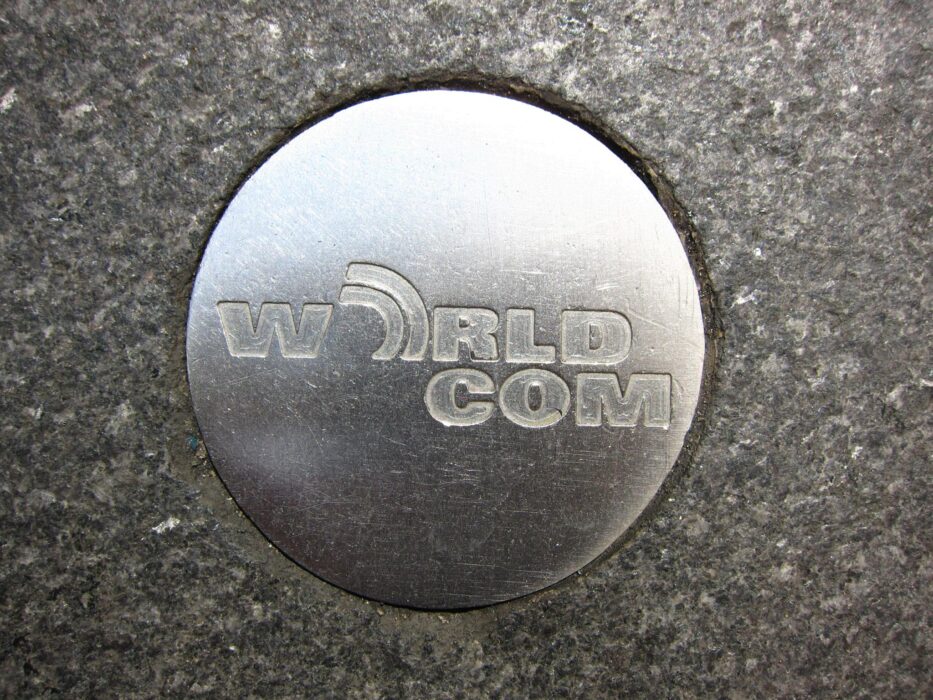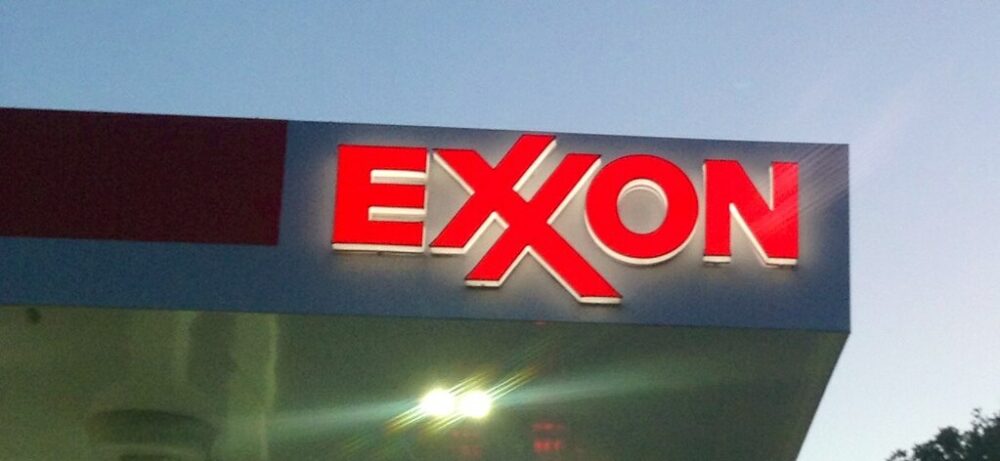When boardroom power plays become national catastrophes.

Nothing shatters public trust quite like a corporate scandal. These aren’t just accounting errors or poor decisions—they’re full-blown implosions that leave stockholders scrambling, reputations ruined, and entire industries shaken. Some caused financial collapse. Others destroyed pensions or poisoned public health. Every one of them left a permanent mark on American business history.
What they all share is the same toxic cocktail: unchecked power, ego, and a belief that no one was watching—until they were.
1. Enron’s house of cards collapsed under its own lies.

Once a Wall Street darling, Enron was hailed for its innovation in energy trading and its aggressive expansion, according to Peter Bondarenko at Britannica. Behind the scenes, though, the company built its empire on fake profits, shell companies, and off-the-books debt. Executives used “mark-to-market” accounting to make speculative future earnings appear as current revenue. Investors were dazzled—until it all unraveled in 2001. When Enron declared bankruptcy, employees lost retirement savings, and executives were indicted. The scandal gave birth to tighter regulations like the Sarbanes-Oxley Act, but the damage was already done. Enron proved that when image trumps ethics, the crash is just a matter of time.
2. WorldCom cooked the books and cratered the telecom boom.

WorldCom was supposed to be the crown jewel of America’s telecom revolution, as reported by John Berrigan at the International Banker. It had the size, the buzz, and a CEO who loved media attention. But to maintain its stock price, the company started classifying everyday expenses as capital investments—artificially inflating its profits by billions. By the time the fraud was discovered in 2002, it was one of the largest bankruptcies in U.S. history. Thousands lost their jobs, and investors were left with worthless shares. What made it worse was the sheer scale and brazenness. It wasn’t just a creative accounting trick—it was financial fiction on a blockbuster scale.
3. Bernie Madoff’s Ponzi scheme duped the elite.

Bernie Madoff didn’t just run a Ponzi scheme—he ran the Ponzi scheme, as stated by James Chen at Investopedia. For decades, he portrayed himself as a brilliant investor with returns that seemed too good to be true. And they were. Madoff used money from new investors to pay off old ones, fabricating account statements to maintain the illusion. The scam finally collapsed during the 2008 financial crisis, when too many clients asked for withdrawals he couldn’t fulfill. Billions vanished, and victims included celebrities, charities, and everyday retirees. Madoff’s fall was so epic, it permanently redefined what financial betrayal looks like on Wall Street.
4. Theranos promised a revolution and delivered vaporware.

Theranos was Silicon Valley’s perfect myth: a young, brilliant female founder, a cutting-edge blood-testing device, and promises to upend the medical industry. Investors fell hard, pumping in hundreds of millions. The media couldn’t get enough. But the machine never worked—and the company lied to regulators, doctors, and patients for years. Elizabeth Holmes faked demos, doctored results, and hid the truth until whistleblowers finally cracked the facade. The damage wasn’t just financial. Patients got wrong diagnoses. Trust in biotech innovation took a hit. Theranos didn’t just fail—it exploited faith in progress and made everyone question what innovation really means.
5. Lehman Brothers blew up the global economy.

In 2008, the collapse of Lehman Brothers marked the tipping point of the financial crisis. The bank had taken on massive risk with subprime mortgages, bundling bad debt into “safe” investment vehicles. As the housing market buckled, so did the facade. Lehman couldn’t cover its bets, and regulators let it fail. What followed was global financial chaos—credit markets froze, jobs vanished, and the Great Recession began. Unlike others, Lehman didn’t get bailed out, making its bankruptcy a symbol of the unchecked greed and short-term thinking that nearly tanked the global economy.
6. Purdue Pharma pushed painkillers and sparked an epidemic.

Purdue Pharma didn’t just sell a product—they helped create a national crisis. OxyContin was marketed as a low-risk painkiller, despite being highly addictive. Purdue aggressively targeted doctors, sponsored phony research, and downplayed the drug’s dangers. The result? A tidal wave of addiction and overdose deaths across the U.S. Lawsuits followed, and in 2020, Purdue filed for bankruptcy amid thousands of claims. The company’s executives largely avoided jail time, but their legacy is written in obituaries and broken communities. This wasn’t a recall-level blunder—it was a catastrophe built on marketing spin and moral neglect.
7. Boeing’s 737 Max disaster was built on corner-cutting.

Boeing used to be synonymous with safety. That changed with the 737 Max. In the race to compete with Airbus, Boeing fast-tracked development and allegedly downplayed serious design flaws—especially the flight control software. Two crashes in 2018 and 2019 killed 346 people. Internal emails revealed a culture where safety concerns were ignored and engineers were pressured to hit deadlines. Boeing lost billions, grounded its fleet, and had its reputation gutted. It wasn’t a fluke—it was systemic. When speed and profit take precedence over human lives, the fallout isn’t just financial—it’s unforgivable.
8. Wells Fargo created fake accounts to meet quotas.

Wells Fargo’s scandal wasn’t about rogue traders or high-stakes fraud—it was everyday deception, multiplied millions of times. In an aggressive push for sales, employees created fake bank and credit accounts without customer consent to meet impossible quotas. Customers were charged fees for accounts they never opened. When the scheme unraveled in 2016, the bank paid billions in fines and fired thousands, but its reputation was permanently damaged. Worse, the pressure came from the top. Executives encouraged the hustle, then tried to dodge accountability. It was a scandal built on micromanagement, desperation, and warped corporate culture.
9. Exxon covered up climate science for decades.

In the late 1970s, Exxon’s own scientists warned that fossil fuels could lead to catastrophic climate change. Instead of acting, the company chose obfuscation. It funded denial campaigns, discredited climate science, and sowed doubt across the public and political spheres. All while internally planning for a warming world. The result is decades of delay in confronting one of humanity’s greatest threats. Exxon didn’t just lie—it actively shaped the conversation to protect its profits, no matter the long-term cost. This scandal spans generations, making it one of the most damaging acts of corporate gaslighting ever recorded.
10. Union Carbide’s Bhopal disaster left a city poisoned.

Though it happened in India, the 1984 Bhopal gas leak is a U.S. corporate scandal through and through. Union Carbide, an American company, owned the pesticide plant that leaked deadly methyl isocyanate gas into the air, killing thousands and injuring hundreds of thousands more. Safety systems were underfunded, maintenance was lax, and training was inadequate. After the disaster, the company fled responsibility, leaving behind lawsuits, health crises, and contaminated soil. To this day, survivors are still fighting for justice. Bhopal showed the world how easily corporations can exploit lax regulations—and how slow accountability can be when lives aren’t profitable.
11. Facebook’s data betrayal torched digital trust.

Facebook’s Cambridge Analytica scandal wasn’t just about data—it was about how tech companies quietly trade our privacy for power. Millions of users’ data was harvested and weaponized for political targeting, all under the radar. When it came to light in 2018, Facebook scrambled to explain itself. Mark Zuckerberg faced Congress. Trust in Big Tech cracked. The scandal exposed how little control users actually had over their digital identities—and how far platforms would go to monetize behavior. In a world addicted to connectivity, Facebook showed just how dangerous unchecked digital influence could become.
